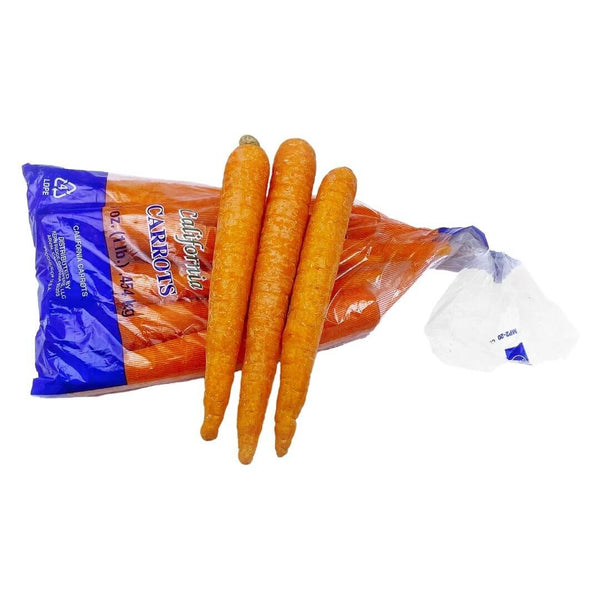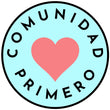
- 40 x 1lb bag
- Cello Carrot aka "Bao-Zhuang-Hu-Luo-Bo", "Bao-Zhuang-Hong-Luo-Bo", "包裝胡萝卜", "包裝红萝卜", "包裝紅蘿蔔"
- Cello carrot is a root vegetable, most commonly observed as orange in color. Cello carrots are typically immature, young carrots sold in one-pound plastic bags. They can be eaten raw or used as an ingredient in stir fry, stew, or roast. Carrot eaten raw is a combination of sweet, earthy, and fruity flavors. Cello carrot is available year-round.
Handling Tip
Selection
- The carrot should be firm, plump, and straight from the shoulder to the tip.
- The skin is smooth with no rootlets, the little strings on the tip of the carrot.
- The carrot should show no signs of cracking and sprouting.
Storage
- Cello carrot should be stored at 37°F - 41°F (3°C - 5°C) with a relative humidity of ninety-eight to a hundred percent.
- The typical shelf life is two to three weeks. High humidity is important to avoid wilting. Long-term storage may lead to yellow tips and soft spots.
- Cello carrot is sensitive to odor. Do not store cello carrots with any strong aroma products.
- Cello carrot is sensitive to ethylene, a naturally occurring gas that regulates ripening. The cello carrot should not be stored with high ethylene-producing products to avoid the development of bitter flavor. Cello carrot produces a very low level of ethylene.
- Cello carrot is not sensitive to chilling injury and should be stored as cold as possible without freezing. The freezing point for cello carrots is 29.8°F (-1.2°C) should be avoided. Freezing injury symptoms include cracks, flabby or discolored skin.
Nutrition Fact
Serving Size 1 carrot (78g)
Amount Per Serving % Daily Value*
Calories 30
Calories from Fat 0
Total Fat 0g ............................................................................................ 0%
Saturated Fat 0g .......................................................................... 0%
Trans Fat 0g .................................................................................. 0%
Cholesterol 0mg .................................................................................. 0%
Sodium 60mg ....................................................................................... 3%
Total Carbohydrate 7g ...................................................................... 2%
Dietary Fiber 2g .......................................................................... 8%
Sugar 5g
Protein 1g
Vitamin A .............................................................................................. 110%
Vitamin C ................................................................................................ 10%
Calcium ...................................................................................................... 2%
Iron ............................................................................................................. 2%
Potassium ................................................................................................. 7%
*The % Daily Value (DV) tells you how much a nutrient in a serving of food contributes to a daily diet 2,000 calories a day is used for general nutrition advice.
*Based on information published by FDA
Recommended for the CELLO CARROT
Product Title
Vendor
$19.99 | $24.99
Product Title
Vendor
$19.99 | $24.99
Product Title
Vendor
$19.99 | $24.99
Product Title
Vendor







